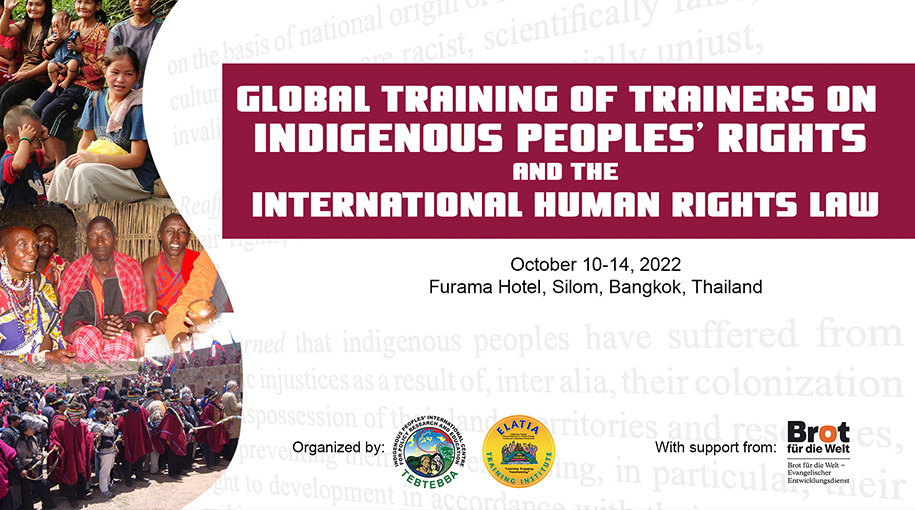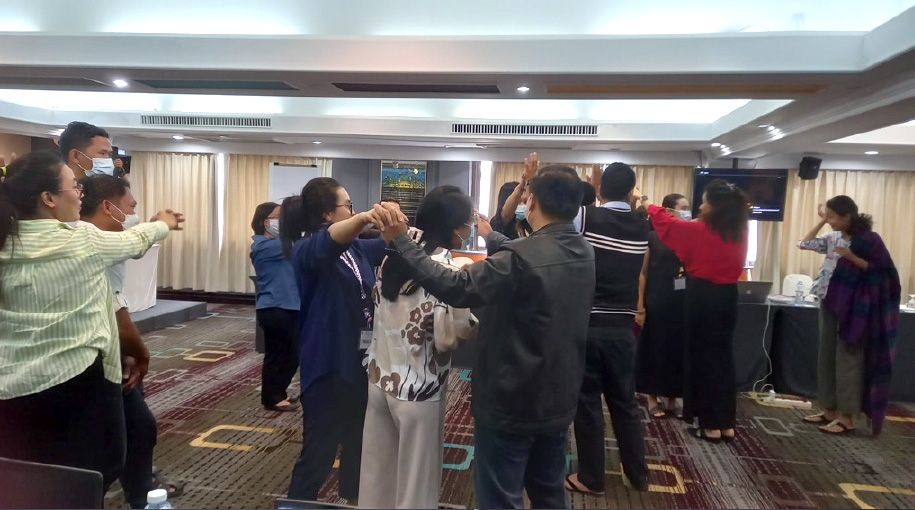“We use several methodologies for education, acting as facilitators, to identify solutions with the use of various training activities – sessions are generally in the form of lectures. We insert different activities to make the experiences exciting, including photos and videos. The problem at the community level is the instability of electricity, hence we use various tools and devices to continue with the discussions. We must know the context because each community has a different situation including cultural norms.”
Ansilla Twisa Mecer, Chairperson of the Yayasan Karya Sosial Pancur Kasih, emphasized the need for cultural sensitivity and resourcefulness as she presented their experiences as community organizers in indigenous communities in West Kalimantan, Indonesia during the Global Training for Trainers on Indigenous Peoples’ Rights and the International Human Rights Law in Bangkok, Thailand on 10 to 14 October 2022. Participants in the events came from various communities in Asia including Bangladesh, Cambodia, Indonesia, India, Nepal, and the Philippines.
The training for trainers focused on understanding several vital human rights laws, mechanisms, policies, and guidelines in including the International Covenant on Economic, Social and Cultural Rights (ICESCR), the International Covenant on Civil and Political Rights (ICCPR), the United Nations Declaration on the Rights of Indigenous Peoples (UNDRIP), and the Convention on the Elimination of All Forms of Discrimination against Women (CEDAW), among others. Participants were given the opportunity to simulate develop and facilitate training activities for each of these topics, aimed to further strengthen their capacity to present the same topics in their focal indigenous communities back home as well as do effective advocacy work.
“Our ultimate goal is to help our communities. More learning and more re-echoing of this learnings would allow strengthening advocacy towards the promotion, protection, and implementation of indigenous peoples’ rights,” emphasized Attorney Jennifer Tauli Corpuz, Global Policy and Advocacy Lead for Nia Tero, who was one of the trainers during the event.

Facilitated by Tebtebba, the said training was made possible with support from Brot fur die Welt.
[Banner photo caption:
Participants doing an ice breaker after a review of the ICCPR, Human Rights Committee (HRC), ICESCR, Committee on the Elimination of Racial Discrimination (CERD), and CEDAW including CEDAW General Recommendation Number 39 (2022) on the rights of Indigenous women and girls.]


